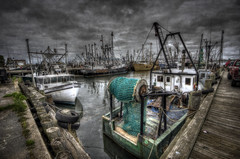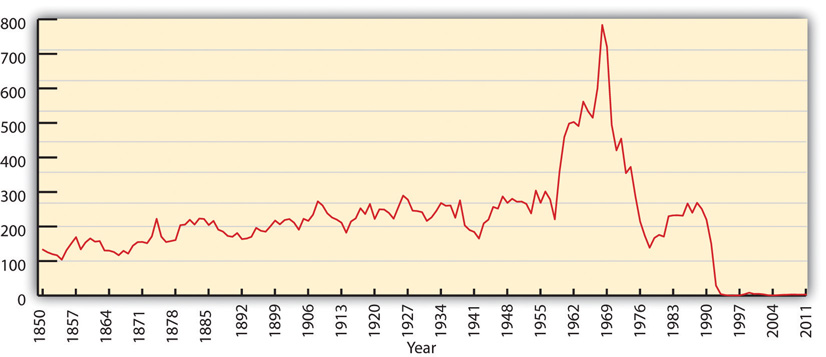 After months of contentious debate, New Bedford Standard Times reporter Steve Urbon says the New England Fishery Management Council finalized deep cuts to cod fishing quotas yesterday:
After months of contentious debate, New Bedford Standard Times reporter Steve Urbon says the New England Fishery Management Council finalized deep cuts to cod fishing quotas yesterday:
The final vote cut the available catch of Gulf of Maine cod by 77 percent to 1,506 metric tons in fishing year 2013. This will have the effect of reducing some fishing boats to one day at sea, or even one hour.Even more alarming for fishermen and their families: The reduced quota is just acknowledging that the fisheries have completely collapsed. As NOAA Fisheries Northeast director John K. Bullard said a week ago, "There are no fish":
Georges Bank cod was cut by 61 percent, to 2,506 metric tons. Many fishermen this year are not catching their quota but these cuts are deeper than any shortfall they are experiencing. Some members, including John Quinn, of Dartmouth, implored NOAA scientists to get serious about coming up with ways of measuring the effects of freshwater influxes into the ocean, ocean warming and the rise of predators such as seals and dogfish.
Cape Cod's representative on the council, Tom Dempsey, told The Standard-Times that Cape fishermen are very concerned about their inability to even catch their quotas of Georges Bank cod.It's sad to see Massachusetts elected officials trying to blame Bullard for the cuts. Do they really think the former mayor of New Bedford would be trying to stick it to fishermen?
Asked what effect cuts in allocation would mean, Dempsey said fishermen already feel as though their quotas have been cut because they cannot find enough fish under the existing levels.
Just look at the annual catch of cod on the Grand Banks:
That's cold, hard reality. We overfished cod, the population collapsed, and even reduced catch quotas aren't bringing them back - we're decades too late. We could eliminate all fishing tomorrow and who knows how long it would take for cod to recover - years? Decades? Conversely, we could eliminate all regulations tomorrow, and the fishermen who depend on cod would still be screwed - there are just no fish left to catch.
If we want to help communities like Gloucester and New Bedford, we should be investing in new industries like offshore wind power. Otherwise we're just leaving them to fight over the last fish left in the sea.
If we want to help communities like Gloucester and New Bedford, we should be investing in new industries like offshore wind power. Otherwise we're just leaving them to fight over the last fish left in the sea.


